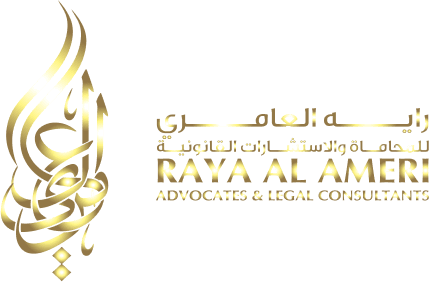UAE Amplifies Laws Addressing Types of Workplace Harassments
Workplace harassment is a pressing issue that can have detrimental effects on both individuals and organizations. It encompasses a wide range of behaviors and actions that create hostile, intimidating, or offensive environments for employees. To address workplace harassment effectively, it’s essential to understand the different forms it can take. By gaining insight into the types of harassment at the workplace, we empower ourselves to create safer, more respectful, and productive work environments for all.
Key Takeaways:
- Workplace harassment encompasses various forms, including sexual harassment, power harassment, and discriminatory harassment.
- Preventing workplace harassment is crucial for creating a safe and productive work environment.
- Understanding the legal perspective on harassment in the UAE is essential for both employers and employees.
What Constitutes Workplace Harassment?
Workplace harassment takes on various forms, and it’s crucial to recognize and address each. These forms can be broadly categorized into the following:
1. Sexual Harassment
Understanding Sexual Harassment: Sexual harassment remains a pervasive issue in workplaces worldwide. It includes unwelcome advances, requests for sexual favors, or any other verbal or physical conduct of a sexual nature. In the UAE, sexual harassment is strictly prohibited under employment law, and victims have legal recourse.
2. Power Harassment
The Impact of Power Harassment: Power harassment involves the misuse of authority or position to intimidate, belittle, or demean subordinates. It can take the form of verbal abuse, unjust disciplinary actions, or arbitrary dismissal claims. Employers are responsible for creating a harassment-free environment and should be vigilant against power harassment.
3. Discriminatory Harassment
Fighting Discriminatory Harassment: Discriminatory harassment occurs when employees are subjected to derogatory comments or actions based on their race, ethnicity, gender, or other personal characteristics. In the UAE, anti-discrimination provisions are in place to protect employees from such harassment.
4. Physical and Psychological Harassment
The Consequences of Physical and Psychological Harassment: Physical harassment involves any form of unwanted physical contact, while psychological harassment includes behaviors that cause emotional distress. Both forms of harassment can have severe legal consequences, and employers must take them seriously.
Preventing Workplace Harassment
Preventing workplace harassment is not only a legal obligation but also a moral one. Employers in the UAE can take several steps to foster a safe and respectful work environment:
1. Clear Policies and Procedures
Establishing Clear Policies: Establish a comprehensive code of conduct that outlines acceptable behavior and the consequences of harassment. Ensure employees are aware of these policies and the procedure for reporting incidents.
2. Employee Training
The Role of Employee Training: Implement harassment prevention training programs to educate employees about different types of harassment and how to report incidents. Regular training helps create awareness and empowers employees to speak up.
3. Investigate Complaints Thoroughly
Handling Complaints: When harassment complaints arise, it’s crucial to conduct thorough investigations promptly. Employers should take all complaints seriously and ensure that the alleged victims are protected from any retaliation.
Legal Perspective in the UAE
From a legal perspective, the labor law framework offers robust protection against workplace harassment, underlining the country’s commitment to ensuring fair and respectful employment practices. Employees in the UAE are granted rights and safeguards to maintain a safe and harassment-free work environment.
1. UAE Labor Law Provisions: The UAE Labor Law, particularly Federal Law No 33 2021, outlines provisions that directly address workplace harassment. These provisions offer protection against various forms of harassment, including but not limited to sexual harassment, power harassment, discriminatory harassment, and physical or psychological harassment.
Reference: Federal Law No 33 2021 states that “The employer shall be responsible for taking necessary steps to maintain the safety and health of workers and to protect them from occupational injuries.”
2. Strict Anti-Harassment Measures: Employers in the UAE are legally obligated to maintain a workplace free from harassment. This includes implementing strict anti-harassment policies and measures aimed at preventing, addressing, and resolving harassment complaints promptly and effectively.
3. Legal Recourse for Victims: Employees who experience harassment in the UAE can seek legal recourse and protection. They have the right to file complaints with relevant authorities, such as the Ministry of Human Resources and Emiratisation or the labor dispute committees. These authorities can initiate investigations into harassment allegations and take appropriate actions.
4. Penalties for Offenders: The UAE labor law does not take workplace harassment lightly. Offenders can face significant penalties, including fines, imprisonment, or both, depending on the severity of their actions. This acts as a strong deterrent against engaging in harassment behaviors.
5. Protection for Whistleblowers: Employees who report workplace harassment or participate in investigations are protected from retaliation or discrimination by their employers. The UAE labor law safeguards whistleblowers to encourage reporting of harassment and maintain transparency.
Harassment Claims in the UAEProving harassment claims in the United Arab Emirates (UAE) is a critical step for employees who have experienced any form of workplace harassment. It’s essential to provide substantial evidence to support the allegations. Here are the methods and steps employees can take to establish their harassment claims:
1. Detailed Documentation
- Keep a thorough record of each incident, including dates, times, locations, and descriptions.Note any witnesses present during the harassment incidents.
2. Witness Testimonies
- Seek cooperation from colleagues or individuals who witnessed the harassment.
3. Physical Evidence
- Physical evidence can be powerful in demonstrating the severity and impact of the harassment.
4. Communication Records
- Save and print copies of relevant electronic communication, including emails, text messages, or social media interactions.These records can serve as evidence of the harasser’s intent and actions.
5. Timely Reporting
- Report the harassment promptly to the employer or human resources department.
6. Legal Counsel
- Consult with an employment lawyer experienced in workplace harassment cases.
7. Filing a Formal Complaint
- If other resolution methods fail, employees can file a formal complaint with relevant UAE authorities, such as the Ministry of Human Resources and Emiratisation
9. Legal Proceedings
- In severe cases where other avenues have been exhausted, employees may choose to pursue legal action.This can involve filing a civil lawsuit seeking damages for the harm caused by harassment.Legal proceedings may require presenting evidence in court.
Frequently Asked Questions
Q1: Can workplace harassment lead to termination of employment in the UAE?
A1: Yes, depending on the severity of the harassment and its impact, it can result in the termination of employment, either through disciplinary action or the victim’s choice to resign.
Q2: Are there any specific protections for part-time employees in the UAE?
A2: Yes, the UAE labor law extends protections to part-time employees as well, ensuring they have rights against workplace harassment and discrimination.
Conclusion
Workplace harassment is a grave concern that demands our attention, understanding, and action. In the UAE, as in many parts of the world, there exist strong legal provisions aimed at safeguarding the well-being and dignity of employees.
From a legal perspective, the UAE labor law is designed to protect employees from the scourge of workplace harassment. Provisions are in place to penalize offenders and provide recourse for victims. No one should endure harassment in silence.We invite you to take these issues seriously, whether you are an employer or an employee.
If you find yourself in a situation involving workplace harassment, seek legal counsel, and report the matter to the appropriate authorities. Together, we can create workplaces that are safe, respectful, and productive for all.If you require further assistance or legal guidance regarding workplace harassment in the UAE, please do not hesitate to reach out to us. Your well-being and rights matter, and we are here to help you navigate the legal landscape.

